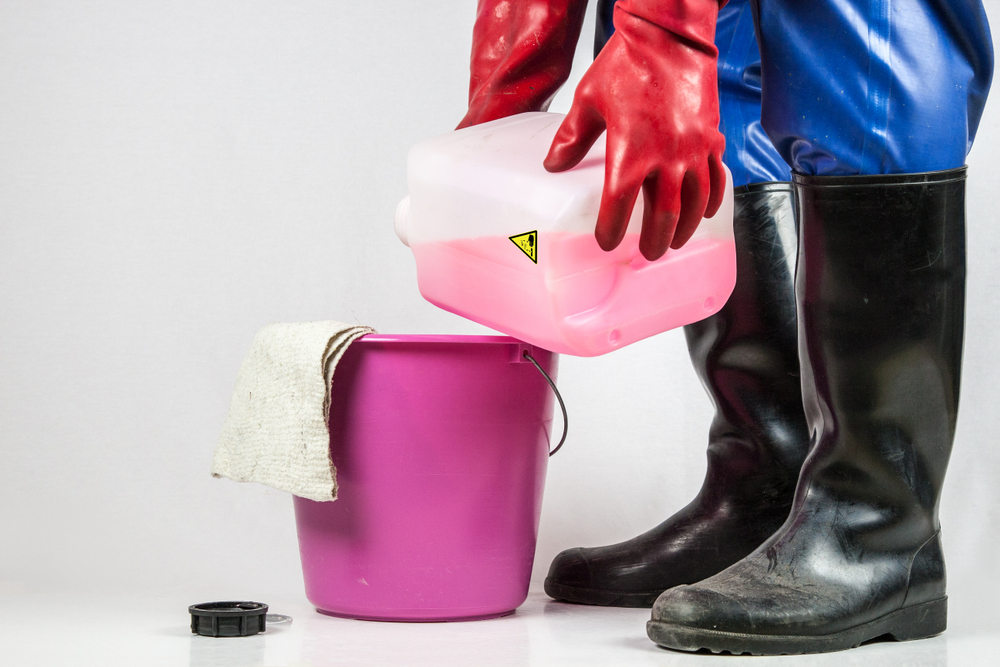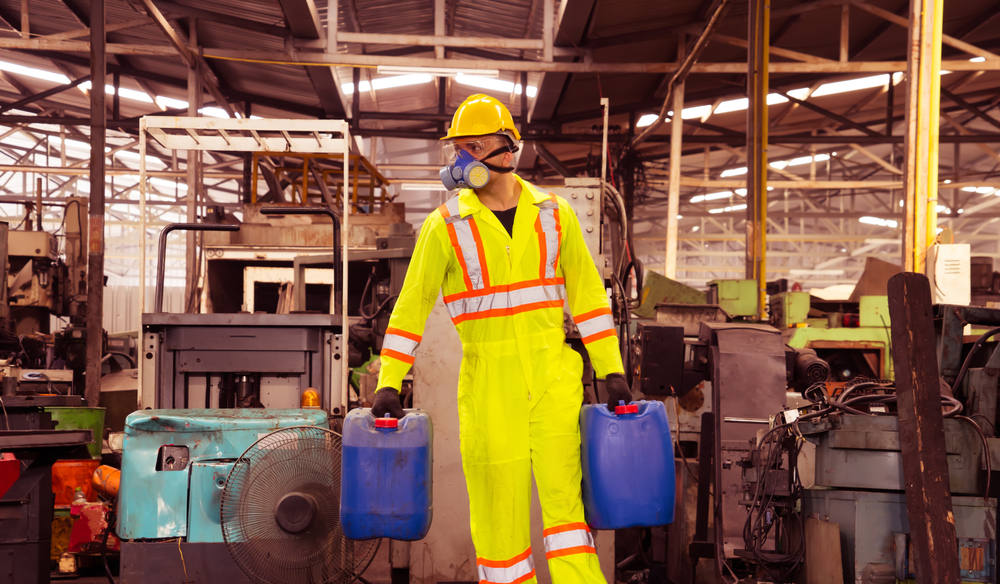Did you know that every workplace stocks and uses chemicals on a daily basis? From cleaning solutions kept under the sink to products used in large industrial settings, we’re all exposed to chemicals at a certain level. What those chemicals consist of and the hazard they pose will vary significantly, but the majority will fall into a few basic categories. Knowing the basic usage guidelines for each will help ensure your worksite stores and handle them appropriately. In today’s blog, we will be going over how to safely handle common workplace chemicals so that you can create a safer working environment.
Compressed Gases
Compressed gases can describe anything from propane, oxygen bottles, and oxyacetylene all the way down to something as simple as spray paint. Any substance that is compressed into a canister or contains a propellant falls into this category. Compressed gases can potentially explode and cause fires under certain conditions.
The detailed points of handling these types of chemicals can be found in the safety data sheet (SDS). However, the general rule for compressed gases is to ensure they’re not exposed to excessive heat. If you allow cylinders to become overheated, it will cause the pressure within them to increase. While these cylinders do have pressure-release devices, there are limitations to what they can do.
It’s best to prevent storing compressed gases near other flammable materials. It’s also advisable to NOT store oxidizers (such as compressed oxygen or peroxides) with flammable compressed gases since they may be a deadly combo in the event of a fire. When the fuel combines with the oxygen, it will produce an energetic flame that will quickly get out of control as it will be able to sustain itself.
Cleaning Products
Cleaning products, disinfectants, detergents, and solvents come in various types. They range from citric acid mixes and benign to organic solvents like Xylene or Toluene. The majority of cleaning products act as solvents, so you don’t want them to make direct contact with your hands. Solvents “de-fat” skin, meaning it will dissolve dermal lipids in the skin and desiccate them—causing (potentially chronic) dermatitis. Hydrocarbons that specialize in decreasing or solving—such as Styrene, Toluene, and methyl ethyl ketone) tend to be energetically flammable. These hydrocarbons need to be handled with extra care due to this issue.

Even among common consumer cleaning products, there are many hazards to consider. Common combinations that can result in highly hazardous materials include:
• Ammonia + Chlorine = Chloramine Gas
• Alcohol + Bleach = Chloroform
• Vinegar + Bleach = Chlorine Gas
• Chlorine Gas + Water = Hydrochloric Acid
In essence, the take-home message is: Do not mix bleach with anything. Period.
Paints & Coatings
Inhaling is the biggest concern when it comes to paints and coatings—especially those that are applied via spraying. Sprayers disperse mini droplets of paint in all directions, so the person applying it, along with anyone in the vicinity, needs to be protected.
The paint/coating itself isn’t usually the key concern. Paints and coatings are dissolved in a solvent to keep them in a usable liquid form. In the process of spaying, the solvent evaporates (in a normal atmosphere). If you are close by when that happens, you may be inhaling it or risk accidentally igniting it when it mixes in the air.
Understanding the latter paint is essential. If an unventilated space, it’s possible to reach the Lower Explosive Limit (LEL) and create a major fire risk if any ignition sources are near. All it takes is a spark to set it off.
Chemical Protection Equipment
Workplace chemicals are not to be taken lightly. If not handled correctly, they can become a major hazard in just seconds! That’s why it’s important to understand their use protocols and wear the proper personal protective equipment for handling a certain chemical. We hope this blog helped you see how to safely handle common workplace chemicals. If you’re looking for reliable safety equipment for handling all kinds of different chemicals, Extreme Safety has got your back! Call us at (310) 856-0166 or click here to shop for safety equipment today!


















